The Changing Dynamic and Restrictions on Global Mobility
We live in interesting times. As economies emerge from lock down to re-start business, how do we change our basic assumptions to operate global mobility?
Ireland’s National Skills Strategy 2025 published in 2016 is instructive: As a “pre-COVID” document it focuses on the build out of recovery following the 2008-2013 recession. The challenges and solutions proposed in 2016 remain valid. It is simply the case that the global instabilities identified at the time of writing have become more unstable following the pandemic.
A key passage from the National Skills Strategy notes the new global trends emerging – “technological change, changing consumption patterns, new ways of working, global value networks (value chains), urbanisation and pressure on resources” and of high relevance to our current situation “shifting power structures” (Skills Strategy page 31)
Regulation on travel to and from global jurisdictions has regulated access to overseas talent. Changes to regulations governing access and travel invariably will create mobility bottlenecks.
The EU Commission provides some useful analysis:
In the current situation, deviation from the general rules can lead to negative impacts. For example, restrictions of the territorial validity or length of validity of a visa will limit visa holders’ ability to adapt to sudden changes in travel restrictions. Systematically limiting the territorial validity of visas could be detrimental to Member States without hub airports on their territory and to frequent travellers. Moreover, this would risk creating new transport bottlenecks in the future, because essential travellers (e.g. lorry and train drivers, air and sea crew) would not be able to move freely. It could also put a renewed strain on Member States’ limited visa issuing capacity at the beginning of the resumption of operations. The European Commission Guidance for a phased and coordinated resumption of visa operations (Brussels, 11.6.2020 C(2020) 3999. Page 3)
A Close Look at the Negative Effects on the Mobility of High Skill Workers into Ireland
Power relationships have been altered and redefined. These relationships have become more volatile as the pandemic has spread and second waves appear. Will this alter our access to overseas recruitment pools for talent to address skills shortages? – certainly. Will we need to respond to changing levels of access to some jurisdictions and recruitment pools as the pandemic develops? – certainly.
Ireland had been proposing a 9th July start for this re-opening process and relying upon a “green list” of designated safe countries where travel may be facilitated. These lists will be under continuous review and may change as the pandemic’s focus shifts or new spikes occur. Ireland thus far has not joined in the application of EU restrictions. However there remains a distinct possibility that it may choose to do so in the future (EU Loc. cit., note 1). As matters stand Ireland is proposing a slightly later border re-opening than that associated with EU discussion. See also Council Recommendation on the temporary restriction on non-essential travel into the EU and the possible lifting of such restriction .(Brussels 9208/20 30th June page 4 ). It would be our view that Ireland is likely to align itself with the broad contours of the EU response.
One notable characteristic of the Irish situation is that Ireland North and South is being treated in broad terms as a single epidemiological zone: persons travelling south are not required to self-isolate for 14 days. Persons travelling from every other jurisdiction including the rest of the UK, the wider EU, and all other third countries are required to do so. Fines for breaching self-isolation conditions can be up to €2,500. Travel is not being encouraged.
The European Commission underscores the broad epidemiological underpinning, which we now must consider when re-starting and operating a global mobility policy. Their aim is a synchronised resumption of visa operations. However, the capacity to provide visa services will be affected by local confinement measures within other jurisdictions. It is anticipated that initial demand for visa services will be slow for the rest of 2020 even in countries where demand was traditionally high such as Russia, China, and India. (EU Loc.cit page 2 note 6).
Another significant location for Ireland in terms of the scale of business is the US. The imminent exclusion of US nationals from immediate travel to the EU is therefore significant. According to the New York Times (23rd June) the EU is preparing draft lists where countries have been selected as safe based on a combination of epidemiological criteria. The benchmark is the EU average number of new infections, over the past 14 days per 100,000 people, which is currently 16 for the bloc. The comparable number for the United States is 107, Brazil is 190 and Russia is 80.
It is therefore highly likely that nationals from these countries will be excluded from travel to the EU from July 1st. The exclusion of US nationals from an EU jurisdiction, unthinkable a few months ago, is now a reality. To this list we add India not cited by the NYT , but which has been referenced by the EU as a country where demand for visa services has very significantly reduced (see above). India is a country with 320,000 infections. It now has the world’s fourth-highest number of confirmed cases, behind Russia, Brazil and the US (BBC reporting 15th June). It is unlikely that India would make an EU safe list in the immediate term. It is unlikely that India will be on an Irish green list for the same reasons.
At the time of writing all non Irish nationals will require to self-isolate for 14 days on arrival Ireland. This includes US, UK (excepting Northern Ireland) India, EU. The US embassy (30th June) in Dublin is putting travellers on notice that further restrictions may be applied with little or no advance notice. This is a live situation and we will update.
How to Navigate these Changes and Facilitate Solutions for to Mobilise the Much Needed High Skill Workers into Ireland
We need to be aware of this dynamic and learn to mitigate its effects. European responses to the pandemic have been led by differing national policies. To date the visa terrain within Europe has been balkanised by uneven national border responses to the pandemic. The Commission seeks to harmonise as the bloc seeks to open to third countries beyond its external borders.
The inclusion of India and the US in the excluded categories is significant from an Irish perspective given the levels of trade that we conduct with the US and the levels of recruitment to address skills shortage that Ireland derives from India either directly through the employment system or indirectly through the Graduate 1G schemes. Ultimately such routes require an open gate in the country of origin.
Irish skills shortages are still a live issue. The key industry areas that struggle to find talent remain:
- Tech and IT
- Science and Engineering
- Finance
- Healthcare
- Construction
According to a recent CIPD study (May 2020) 84% of Irish organisations are battling skills shortages for new talent (up from 81% for the same period last year). Amongst these sectors ICT and Financial Services are particularly affected.
The solution will be to harden and shorten supply chains and to be agile strategically in addressing access barriers as we move into later phases of this pandemic. We need to be cognisant of and responsive to a constantly changing national policy environments in the short to medium term and factor impacts into mobility planning.
Ireland: Look to the graduating cohorts of students (including international students) coming through during summer 2020. All non – EU students from qualifying Irish teaching institutions may avail of the Graduate Scheme: placed onto an Irish Stamp 1G which gives them the capacity to work immediately on graduation. Hire a 1G holder and then immediately rotate them onto the relevant employment permit. This is an excellent recruitment pipeline that is short and stable. We have used it very successfully with our clients for several years and particularly during these COVID affected times.
Look to non – EU high skill holders already located in Europe. It is highly probable that travel between different EU jurisdictions will free up more quickly than travel outside the EU. The alignment of EU visa policies with epidemiological considerations will facilitate this. Historically we have assisted in terms of the transfer of non – EU nationals located in other EU jurisdictions. Route an employment permit application through the Department of Enterprise in Dublin and then once issued, route a vias application through the Irish embassy in the relevant EU jurisdiction where the candidate is living. Germany, France, Sweden, Finland all have highly developed recruitment programmes that we can also leverage.
A new Irish government was finally installed on 27th June will very shortly publish its Green lists. This is an evolving situation. More therefore to follow. A visa and immigration strategy needs to be agile and responsive. Please speak with us if you would like to discuss any needs. We are delighted to assist.

